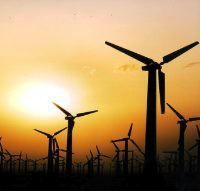IPCC Special Report on Renewable Energy Sources and Climate Change Mitigation published
New IPCC report assesses existing literature on the future potential of renewable energy for the mitigation of climate change
A New Special Report has been published by IPCC on 9 Mai 2011 which assesses existing literature on the future potential of renewable energy for the mitigation of climate change. It covers the six most important renewable energy technologies, as well as their integration into present and future energy systems. It also takes into consideration the environmental and social consequences associated with these technologies, the cost and strategies to overcome technical as well as non-technical obstacles to their application and diffusion.

At its 11th Session of Working Group III on 5-8 May 2011 in Abu Dhabi, the IPCC has approved the Summary for Policymakers of a new Special Report on Renewable Energy Sources and Climate Change Mitigation (SRREN). The summary is a short version of a roughly 900 page comprehensive assessment compiled by over 120 leading experts from all over the world for IPCC’s Working Group III. Over 160 scenarios on the potentials of six renewable energy technologies (bioenergy, solar energy, geothermal energy, hydropower, ocean energy, and wind energy) have been reviewed by a global team of technological experts and scientists. In their conclusions, the experts underline the significant future role of renewable energy in cutting greenhouse gas emissions and powering pustainable development. Close to 80 percent of the world’s energy supply could be met by renewables by mid-century if backed by the right enabling public policies a new report shows. The findings, from over 120 researchers working with the Intergovernmental Panel on Climate Change (IPCC), also indicate that the rising penetration of renewable energies could lead to cumulative greenhouse gas savings equivalent to 220 to 560 Gigatonnes of carbon dioxide (GtC02eq) between 2010 and 2050. The upper end of the scenarios assessed, representing a cut of around a third in greenhouse gas emissions from business-as-usual projections, could assist in keeping concentrations of greenhouse gases at 450 parts per million. This could contribute towards a goal of holding the increase in global temperature below 2 degrees Celsius – an aim recognized in the United Nations climate convention's Cancun Agreements.
Quelle: IPCC
